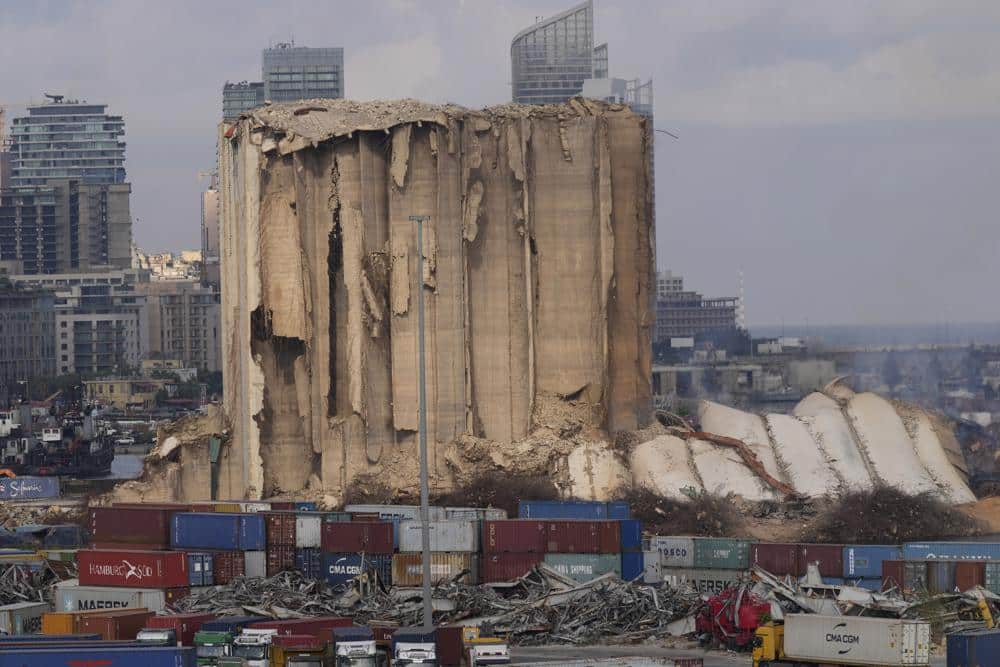On March 7, a joint statement delivered by Australia before the UN Human Rights Council condemned Lebanon’s pervasive obstruction and interference with the domestic investigation into the August 4, 2020 Beirut blast investigation.
The statement, made on behalf of 38 countries, called on Lebanon to take immediate action to carry out necessary judicial reforms and remove obstacles undermining the investigation. The statement further called for an independent and impartial fact-finding mission to be established without delay to investigate the explosion, which killed over 200 people, wounded over 7,000, and caused extensive property damage.
What is the current state of the Beirut Blast investigation?
Lebanese authorities have been criticized for allowing political interference with the judiciary, which has allowed a culture of impunity to flourish. Judge Tarek Bitar, the lead investigator into the blast, has charged more than a dozen political, judicial, and security officials in the probe, including Ghassan Oueidat, Lebanon’s powerful state prosecutor. However, the investigation has been suspended for over a year, and Lebanese politicians who are suspects in the case have filed over 25 requests to dismiss Judge Bitar and other judges involved in the case.
Following the condemnation of the pervasive obstruction and interference in Lebanon’s domestic investigation into the August 4, 2020 explosion at Beirut’s port, by 38 countries at the UN Human Rights Council on March 7, 2023, Human Rights Watch and Legal Agenda issued a joint statement calling on the Lebanese authorities to urgently act and carry out badly needed judicial reforms and remove other obstacles undermining the domestic investigation into the explosion.
Why is this condemnation of the Beirut blast investigation significant?
The statement delivered by Australia before the UN Human Rights Council stated that the 38 states called on Lebanon to “take all necessary measures to safeguard, in law and in practice, the full independence and impartiality of the Lebanese judiciary” and to ensure that a “swift, independent, impartial, credible, and transparent investigation into the explosion” be carried out. The investigation into the Beirut port explosion has been suspended for over a year.
The statement is significant as it demonstrates that several governments, including many of Lebanon’s donors and supporters, are losing patience with the government’s failure to carry out the investigation effectively. The signatory states included Australia, the United States, Canada, the United Kingdom, France, Germany, Japan, and several other countries from around the world.
Why is political interference rife in Lebanon?
For years, Lebanese and international rights groups have documented political interference with the judiciary and criticized its lack of independence, which has allowed a culture of impunity to flourish in Lebanon. The domestic investigation into the Beirut port explosion case is no exception, with Lebanese politicians who are suspects in the case filing over 25 requests to dismiss the lead investigator, Judge Tarek Bitar, and other judges involved in the case, causing the inquiry to be repeatedly suspended while the cases are adjudicated.
Lebanon has also been called upon to urgently review and pass a draft law on judicial independence and transparency that adheres to international standards. This will include the amendment of Lebanon’s codes of judicial procedures to eliminate abuses of the judicial process.
On January 23, 2023, Judge Bitar attempted to resume the investigation and summoned Oweidat for interrogation in the case. Two days later, Oweidat ordered the release of all suspects detained in connection with the catastrophic explosion in Beirut’s port, a decision the Beirut Bar Association, the Lebanese Judges Association, and the Lebanese Coalition for the Independence of the Judiciary criticized as illegal.
The August 4, 2020, Beirut port explosion was one of the largest non-nuclear explosions in history, killing at least 220 people, wounding over 7,000, and causing extensive property damage.
Image Credit: AP Photo/Hussein Malla



















